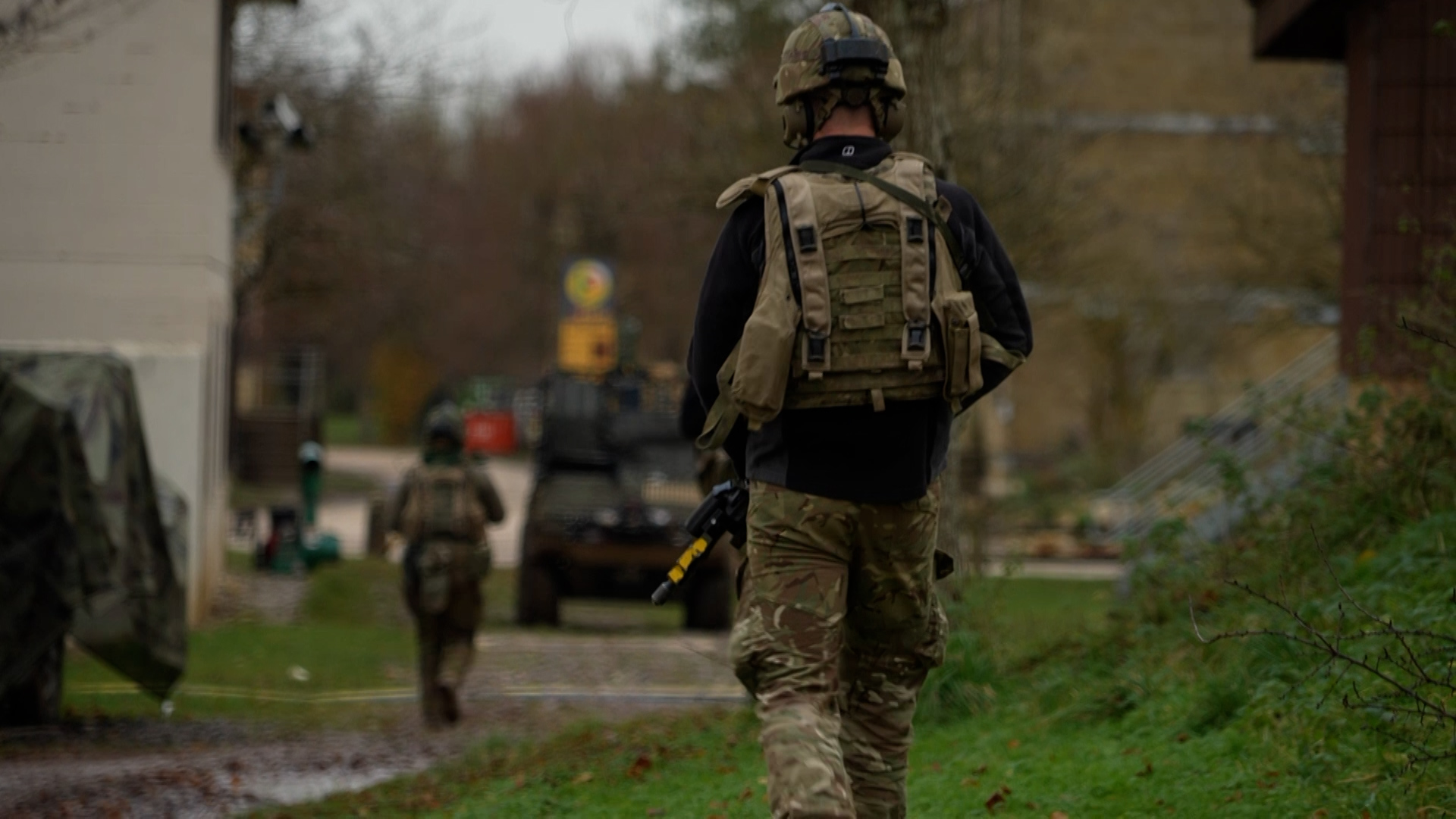
UK not ready to fight an all-out war due to capability and recruitment issues, MPs warn

The UK's readiness to fight an all-out war is marred by capability and recruitment issues, MPs have warned.
In the latest report on Armed Forces readiness – Ready For War?' – the Commons Defence Committee said the Government must address the Armed Forces' capability, stockpile shortages and recruitment crisis.
The report also stresses that the military is "consistently overstretched", with the demands of operations personnel deployed leaving little time for training in warfighting.
'Unrelenting pressure'
"The Government risks being unable to build true warfighting and strategic readiness because of the sheer pace of operations, which could threaten the security of the UK," the report said.
It suggested the "unrelenting pressure" on personnel had exacerbated the crisis in the recruitment and retention of both regulars and reservists, with more people leaving the Armed Forces than joining.
Efforts by the Ministry of Defence to tackle the problem are not being carried out at the required pace, the report adds.
The MPs urged ministers to ensure that the forces are not deprived of the time, resources and training they need to fight and win a high-intensity prolonged war.
Readiness "is essential to effective deterrence to our adversaries" at a time of heightened geopolitical instability, they said.
MOD response
In response to the report, a MOD spokesperson said: "Our Armed Forces are always ready to protect and defend the UK, and we continue to meet all operational commitments, including participating in every single Nato mission, supporting Ukraine and tackling Houthi attacks on shipping in the Red Sea.
"We are spending more than £50bn on defence this year alone, and have significantly increased our spending on defence equipment to £288.6bn over the next decade, including investing in deepening our stockpiles and bringing in new tanks, fighter jets and warships.
"We have been clear that increasing recruitment and improving retention across the services is a top priority, including through ensuring improved career opportunities and making it easier for people to re-join the forces, on top of the largest pay increase in more than 20 years."
'Hollowing out'
But the Defence Committee heard how the "hollowing out" of the Armed Forces since 2010 had undermined the UK's warfighting resilience and that their size reduction meant they would exhaust their capabilities "after the first couple of months of the engagement" in a peer-on-peer war.
Last month, Defence Secretary Grant Shapps said the world was "moving from a post-war to pre-war world" and the UK must ensure its entire defence ecosystem was ready to defend its homeland.
He insisted the size of the Army would not dip below 73,000 under the Conservatives, amid growing concerns about further cuts to troop numbers.
Defence Committee chairman Sir Jeremy Quin said: "A steady, continuous drip of operations and ongoing commitments has meant the military is unable to devote sufficient training and resources to high-intensity warfighting.
"While able to deploy at short notice and to fulfil commitments, our inquiry found that readiness for all-out, prolonged war has received insufficient attention and needs intense ongoing focus.
"On top of this, the high tempo of operations and unrelenting pressure on our services has led to a drop in retention, compounded by a period of low recruitment and difficulties introducing and maintaining capabilities, thereby creating a vicious cycle."
He said the Government must either invest fully in the military or recognise that the proper prioritisation of warfighting would mean less availability for other tasks.
"We need to be strategic about the resources we have, including how to maintain and replenish stockpiles, and consider how to ensure that equipment – even after retirement – does not go to waste," he added.









